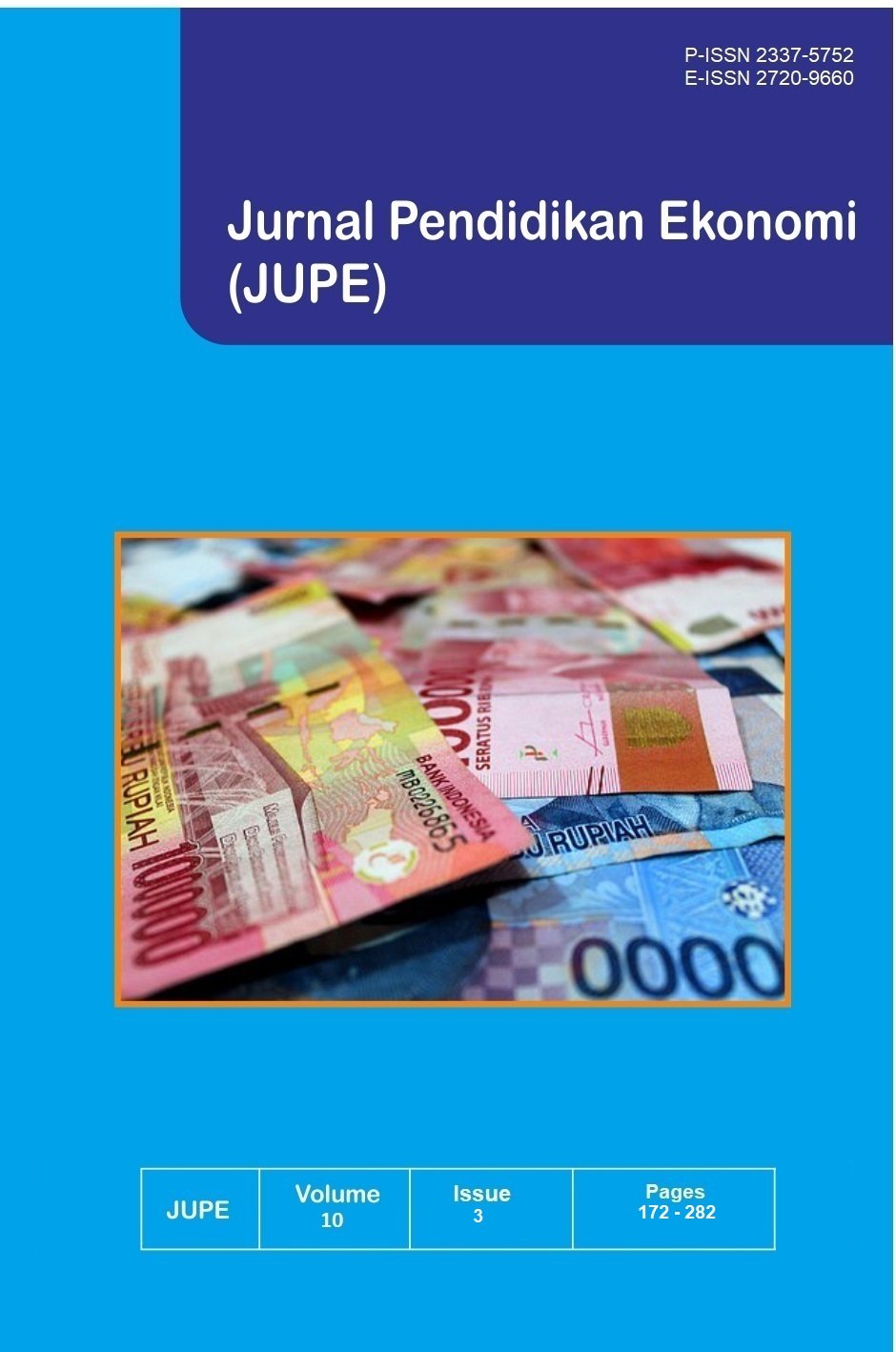Pengaruh Literasi Digital, Efikasi Diri dan Lingkungan Terhadap Intensi Berwirausaha E-Business Mahasiswa Pendidikan Ekonomi Universitas Sebelas Maret
DOI:
https://doi.org/10.26740/jupe.v10n3.p181-193Keywords:
E-business Entrepreneurial Intention, Digital Literacy, Self Efficacy, EnvironmentAbstract
This study aims to determine the effect of digital literacy variabels, own variabels and environmental variabels on the variabels in the e-business entrepreneurship carried out by students of Economic Education at the University of March. This research is quantitative or the data collection is carried out through questionnaires distributed to the respondents. Economic Education students at Sebelas Maret University Class of 2017-2019 are 241 students as a research population. The number of samples in this study was 151 students and the sampling technique used by the researchers was proportional stratified random sampling. Multiple linear regression tests became the investigator's chosen data analysis. The results of the study found that: (1) the variabel digital literacy influences the variabel intensity of entrepreneurship in electronic commerce. (2) the self-efficacy variabel influences the intensity variabel of entrepreneurship in e-business. (3) environmental variabels influence the intensity of e-business entrepreneurship variabels.
Downloads
Downloads
Published
How to Cite
Issue
Section
License
Copyright
- Authors retain copyright and grant the journal right of first publication with the work simultaneously licensed under a Creative Commons Attribution License that allows others to share the work with an acknowledgment of the work's authorship and initial publication in this journal.
 Abstract views: 1453
,
Abstract views: 1453
, PDF Downloads: 1362
PDF Downloads: 1362











